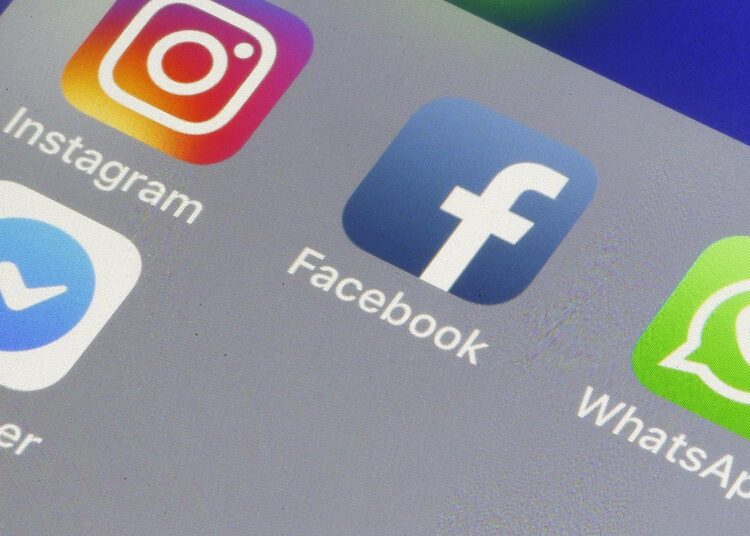WASHINGTON – US regulators filed a new lawsuit accusing Facebook of maintaining an illegal monopoly in social networking, reviving the case two months after it was dismissed by a federal judge.
In the amended complaint, the Federal Trade Commission said Facebook’s dominance “is protected by high barriers to entry,” and that “even an entrant with a superior product cannot succeed against the overwhelming network effects enjoyed by an incumbent personal social network.”
The lawsuit filed in federal court in the US capital said Facebook used “anticompetitive acquisitions” of potential rivals such as Instagram and WhatsApp to protect its dominance.
FTC officials said the deals amounted to “illegal buy-or-bury” schemes.
“Facebook lacked the business acumen and technical talent to survive the transition to mobile. After failing to compete with new innovators, Facebook illegally bought or buried them when their popularity became an existential threat,” said acting FTC competition bureau chief Holly Vedova in a statement according to AFP.
“This conduct is no less anticompetitive than if Facebook had bribed emerging app competitors not to compete.”
The lawsuit, which could take years to go through the courts without a settlement, calls for the court to order “divestiture of assets,” including WhatsApp and Instagram, to restore competition.
The lawsuit comes amid a rising “techlash” against the largest US tech firms, which dominate key economic sectors and have become stronger during the pandemic as more people turn to online services.
A separate US antitrust action has been filed against Google, and Apple and Amazon are also in the crosshairs of antitrust enforcers.
Facebook, which has long denied it maintains a monopoly, said in a statement: “We are reviewing the FTC’s amended complaint and will have more to say soon.”
In June, US District Judge James Boasberg said in a 53-page opinion that the agency’s initial lawsuit lacked evidence, notably in defining the market that Facebook was allegedly monopolizing.
The federal agency based its initial case on a “vague” assertion that Facebook controlled more than 60 percent of the social networking market, but the FTC “does not even allege what it is measuring,” according to the judge’s June 28 ruling, which allowed the agency an opportunity to refile the case on different grounds.
In the new lawsuit, the FTC argued that “personal social networking services are a unique and distinct type of online service,” in an effort to counter Facebook’s claim that people have numerous choices for connecting with people online.
Using this definition, the FTC said, Facebook controls more than 65 percent of the market with its core social network and Instagram, giving it monopoly power.
The new lawsuit maintained that TikTok — the popular Chinese-owned video app that Facebook claims is a rival — is “a content broadcasting and consumption service that is not an acceptable substitute for personal social networking services.”
The FTC said, meanwhile, it would deny Facebook’s request to disqualify agency chair Lina Khan, a long-time critic of Big Tech, who has called for more aggressive actions against the major firms.
“As the case will be prosecuted before a federal judge, the appropriate constitutional due process protections will be provided to the company,” the FTC said in dismissing Facebook’s request for recusal.
The FTC split 3-2 in its decision to refile the case against Facebook.
Republican FTC member Christine Wilson said in a statement it was “bad policy” to try to undo mergers that were previously approved by regulators.
Alex Petros of the consumer group Public Knowledge, welcomed the new filing and said it should address the concerns noted by Judge Boasberg.
“While the case against Facebook has been re-invigorated today, we cannot lose sight of the immediate need for congressional and executive action to rein in Big Tech,” Petros said.
But Ryan Young of the Competitive Enterprise Institute countered that the FTC complaint “relies heavily on wordplay” to define Facebook as a monopoly.
“It argues that Facebook dominates the market for ‘personal social networking services,’ then defines that term in just such a way that excludes TikTok, Twitter, Clubhouse, Discord and others from that market,” Young said.
“Any market is a monopoly if you define it narrowly enough, and that is the only thing the FTC’s complaint successfully proves.”






Discussion about this post